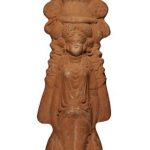 Anouk Everts (Web) and Merle Ingenfeld (Web) (Univ. zu Köln, a.r.t.e.s. EUmanities Programm/Horizon 2020: MSCA Grant No 713600)
Anouk Everts (Web) and Merle Ingenfeld (Web) (Univ. zu Köln, a.r.t.e.s. EUmanities Programm/Horizon 2020: MSCA Grant No 713600)
Time: 16.03.2021
Venue: virtual space, via Köln
Proposals by: 15.02.2021
Sexuality is and has been an important aspect of human social and cultural life throughout history. Yet, ideas and concepts of what sexuality means and how it works have greatly varied over time, and continue to evolve at a rapid pace in modern discourse. This brings with it a plethora of problems in interpretation and understanding of sexuality in the past.
On one hand, it is easy to fall prey to interpreting historical sexualities in modern terms and concepts, thereby ignoring real and no longer existing identities of the past. Thus, we have to be that extra bit reflective in our analytical legwork to avoid fallacies and anachronisms. On the other, we believe it is important to make information about this topic accessible. Therefore, it sometimes seems unavoidable to use terms which will be understood in order to make queer history conceivable for a wider public.
These difficulties are, of course, not confined to situations where we as young academics try to explain our research subjects to audiences outside our more or less narrow research fields. Talking about sexuality in general can also present a challenge in the face of awkwardness, dismissals, and social taboos that still persist in modern academia.
The organizer’s shared efforts to navigate these subject-related difficulties have brought us together in conversation time and time again, despite all the temporal, linguistic, regional, and disciplinary differences between our research fields – Egyptology and contemporary history, respectively. The organizers are aware that we are not the only graduate students currently dealing with these issues on a day-to-day basis. For this reason, they would like to broaden their discussion, and fellow graduate students (late-stage M.A., PhD, and early post-doctoral students), whose research also focuses on sexuality in history, to join our interdisciplinary workshop to discuss work, challenges, and pitfalls.
The organizers are specifically looking for papers that address conceptual issues and problems of dealing with and writing about sexualti(es) of the past. Contributions concerning all regions, time periods, and disciplines are welcome!
Due to the ongoing pandemic, the workshop is scheduled to be held online via Zoom. The workshop language will be English.
If you are interested to participate, please submit a 300-word abstract on your presentation by February 15, 2021 to histsex2021@gmail.com. Participants will be asked to prepare a short talk of no more than 15 minutes as a conversation starter for shared discussion. Discussants without presentation are asked to register via e-mail by Friday, March 12, 2021 at the latest.
Kontakt: Anouk Everts (aeverts@uni-koeln.de) and Merle Ingenfeld (m.ingenfeld@uni-koeln.de)
Source: https://www.hsozkult.de/event/id/event-95616
